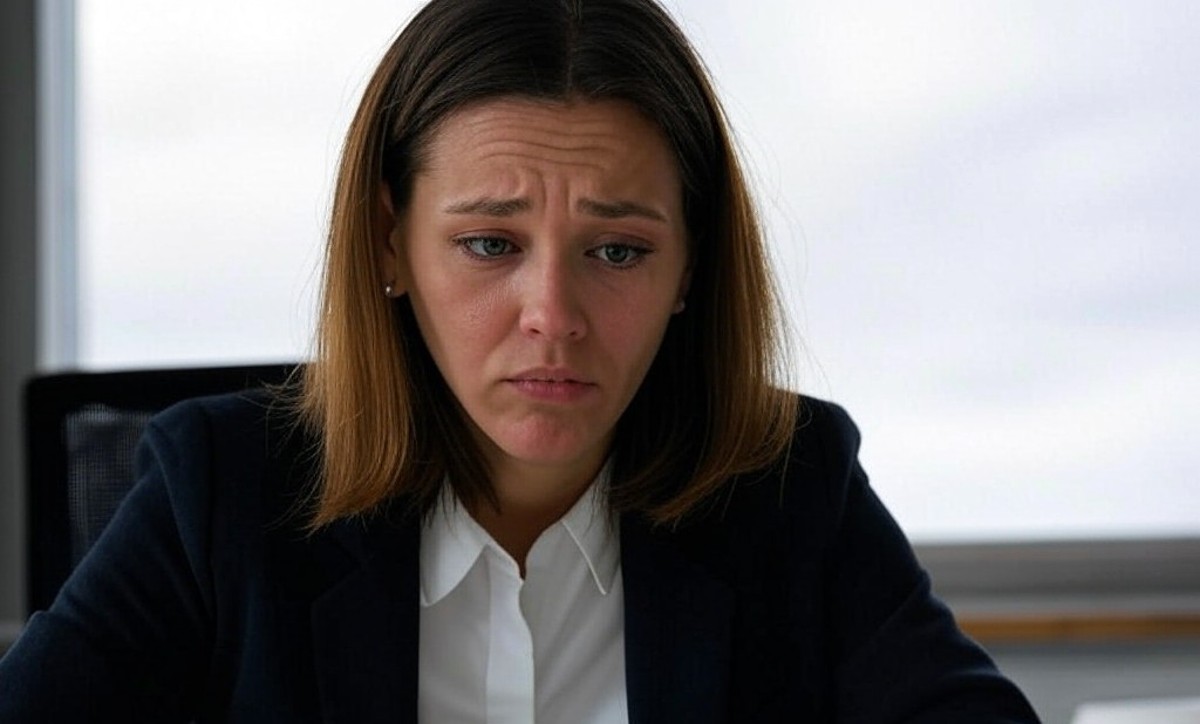We ask you, urgently: don’t scroll past this
Dear readers, Catholic Online was de-platformed by Shopify for our pro-life beliefs. They shut down our Catholic Online, Catholic Online School, Prayer Candles, and Catholic Online Learning Resources—essential faith tools serving over 1.4 million students and millions of families worldwide. Our founders, now in their 70's, just gave their entire life savings to protect this mission. But fewer than 2% of readers donate. If everyone gave just $5, the cost of a coffee, we could rebuild stronger and keep Catholic education free for all. Stand with us in faith. Thank you.Help Now >
Don't retire! We need you!
FREE Catholic Classes
WASHINGTON (CNS) - Columnist Paul Briand writes that when he first heard the term "brain drain" associated with retirement, he immediately feared new scientific evidence suggesting that "my brain would turn to mush when I stop working." In fact, what he found was the opposite: Rather than chronicling the harm done to the retiree, "brain drain" refers to palpable harm done to the work force.
Highlights
Catholic News Service (www.catholicnews.com)
4/30/2007 (1 decade ago)
Published in Marriage & Family
P>As the baby-boom generation nears retirement age, corporations are finding themselves in a sticky situation. Large percentages of employees at some major companies will be eligible for retirement in the next five years. Naturally, these are some of the most experienced and successful employees in their respective companies.
"If they don't act soon, organizations will face a major exodus of institutional knowledge as their most experienced employees leave the work force," said Kathy Battistoni, a partner in Accenture, a management consulting and technology services company that has studied this issue. Why can't this generation be replaced by a younger cohort?
"Plummeting birthrates have corresponded with the rise of the knowledge-based economy, which demands more and more white-collar workers," Jennifer Reingold, who often writes on management questions, said in an article for Business Week. The number of educated people of working age is not increasing at the rates needed to sustain most businesses.
Many companies are reacting quickly. Some have made changes in their corporate structure to make working a desirable alternative for people of retirement age. Deloitte even has gone so far as to offer a "Senior Leaders Program" that would allow select leaders of retirement age to work from anywhere in the world as much as they want, as long as they'll stay on board. And in England, a recent survey found that 80 percent of adults believed that mandatory retirement ages should be abolished, a sign of the growing dependency on older workers. This leads to another surprising option for those approaching retirement: Don't. This does not mean continuing on with the same tasks one has done for years. It can be an exciting opportunity to put years of experience to work in new fields. As Briand puts it, "I want to take some of the knowledge base I've acquired in a 30-year career and apply it to other work. ... I eventually want to step back a little, not step out of the game altogether." In "Laborem Exercens," his 1981 encyclical on human work, Pope John Paul II asserted that essential to the human being is the ability to create -- to work. Work, he said, "is a fundamental dimension" of human existence on earth. What he meant was not that people ought to stay in their jobs until they die, but that if they were entirely to cease creative activity and spending time seeking to benefit the world, something fundamental would be lost from their lives. Multiple volunteering opportunities exist that can provide a way for people to retire but not stop giving of themselves. Groups like Habitat for Humanity and Meals on Wheels thrive on volunteers over the age of 60, especially those whose professions have given them skills that make them particularly helpful for those organizations. Soup kitchens and homeless shelters are in constant need of people who can come by and help -- with maintenance or office work, or just by spending time with those they serve. That said, it seems important -- for the world and the individual -- that the skills developed over a lifetime be put to good use after reaching retirement age. - - - Scaperlanda, a University of Notre Dame senior, was a 2005 CNS summer intern.
---
Copyright (c) 2007 Catholic News Service/U.S. Conference of Catholic Bishops
Join the Movement
When you sign up below, you don't just join an email list - you're joining an entire movement for Free world class Catholic education.
-

-
Mysteries of the Rosary
-
St. Faustina Kowalska
-
Litany of the Blessed Virgin Mary
-
Saint of the Day for Wednesday, Oct 4th, 2023
-
Popular Saints
-
St. Francis of Assisi
-
Bible
-
Female / Women Saints
-
7 Morning Prayers you need to get your day started with God
-
Litany of the Blessed Virgin Mary
Introducing "Journey with the Messiah" - A Revolutionary Way to Experience the Bible
-

Catholic Response to Devastating Los Angeles Wildfires
-

Federal Court Blocks Biden Administration's Gender Identity Rule
-
A Future for Life: Introducing the Winners of the Priests for Life Pro-Life Essay Contest
-
Reflections on Pope Francis' 2025 World Day of Peace message
Daily Catholic
 Daily Readings for Friday, January 10, 2025
Daily Readings for Friday, January 10, 2025 St. William of Bourges: Saint of the Day for Friday, January 10, 2025
St. William of Bourges: Saint of the Day for Friday, January 10, 2025 Prayer for a Blessing on the New Year: Prayer of the Day for Tuesday, December 31, 2024
Prayer for a Blessing on the New Year: Prayer of the Day for Tuesday, December 31, 2024- Daily Readings for Thursday, January 09, 2025
- St. Adrian, Abbot: Saint of the Day for Thursday, January 09, 2025
- St. Theresa of the Child Jesus: Prayer of the Day for Monday, December 30, 2024
![]()
Copyright 2024 Catholic Online. All materials contained on this site, whether written, audible or visual are the exclusive property of Catholic Online and are protected under U.S. and International copyright laws, © Copyright 2024 Catholic Online. Any unauthorized use, without prior written consent of Catholic Online is strictly forbidden and prohibited.
Catholic Online is a Project of Your Catholic Voice Foundation, a Not-for-Profit Corporation. Your Catholic Voice Foundation has been granted a recognition of tax exemption under Section 501(c)(3) of the Internal Revenue Code. Federal Tax Identification Number: 81-0596847. Your gift is tax-deductible as allowed by law.






 Daily Readings for Friday, January 10, 2025
Daily Readings for Friday, January 10, 2025 St. William of Bourges: Saint of the Day for Friday, January 10, 2025
St. William of Bourges: Saint of the Day for Friday, January 10, 2025 Prayer for a Blessing on the New Year: Prayer of the Day for Tuesday, December 31, 2024
Prayer for a Blessing on the New Year: Prayer of the Day for Tuesday, December 31, 2024


